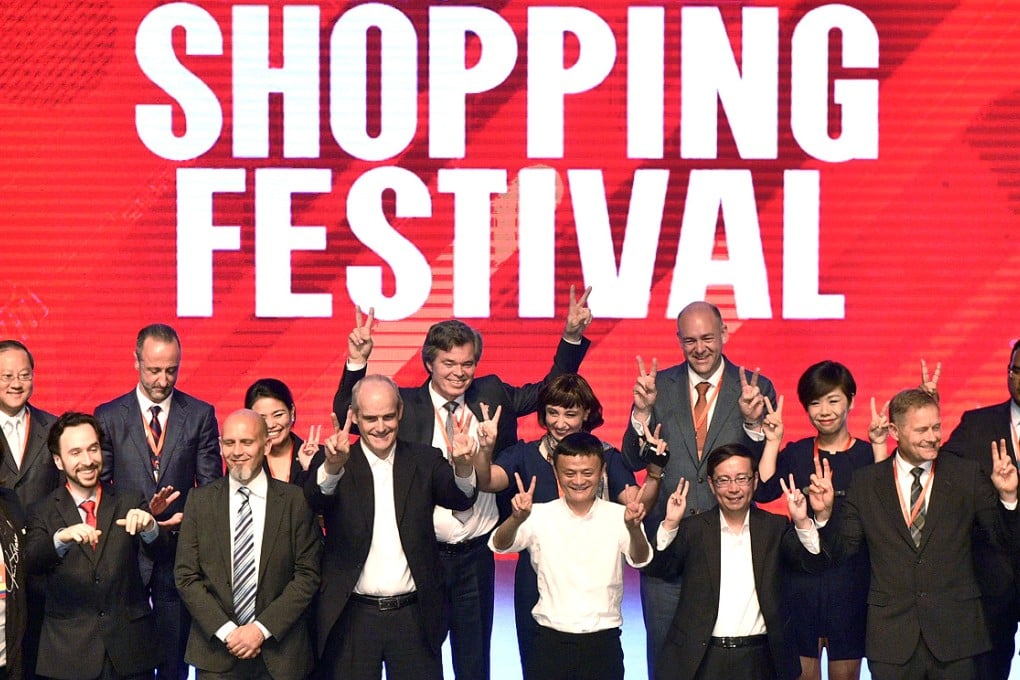Bingo! China's Alibaba likely to conjure up another e-sales record on 'Double 11' singles day after hitting US$9.3 billion last year

Undaunted by China’s slowing economy, e-commerce powerhouse Alibaba Group is expected to set a new global-high for one-day online sales on “Double 11”, the world’s biggest online shopping festival held as part of the “Singles Day” event on the Chinese mainland.
That increase is forecast to be driven by mobile transactions, as well as Alibaba’s sharpened focus on international sales and the participation of more overseas merchants.
Alibaba posted total sales of US$9.3 billion, settled through its Alipay mobile and online payments platform, last November 11 as consumers from 217 countries and territories placed some 278 million orders for about a million different products during that 24-hour period.
The company on Tuesday kicked off the upcoming seventh anniversary of its Singles Day promotional festival, which will be hosted in Beijing next month.
“It is reasonable to expect Alibaba to reach another record gross merchandise volume for transactions [in Double 11] this year,” Alicia Yap, the head of China internet research at Barclays, said in a report on Wednesday.
“We believe mobile [transactions] will once again play an important role.”